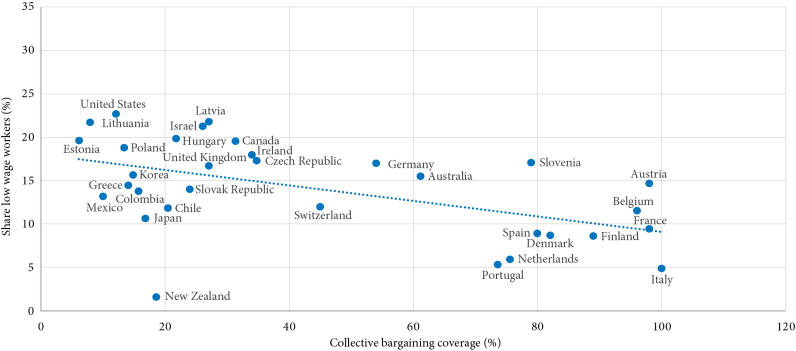OECD Considering Updates to the MNE Guidelines
07 November 2022
The latest instalment of the TUAC Series on the OECD Guidelines for Multinational Enterprises coincides with the OECD initial proposals for targeted updates to its leading standards for responsible business conduct. Briefing #5 | Employment & Industrial Relations updates to the OECD Guidelines (EN | FR | ESP), expresses support for OECD proposed updates to the Employment and Industrial Relations chapter as the first step towards a framework for more constructive industrial relations.
A complementary set of updates is still needed. Unfortunately, the proposed updates for the MNE Guidelines Part II, Implementation Procedures would undo any improvements made in Chapters 1 to 11, reducing implementation in complex supply chains.
The proposed updates will be discussed at the November meetings of the OECD Working Party on Responsible Business Conduct. TUAC encourages OECD Government support for updates to the Employment and Industrial Relations Chapter (V) but call for Governments to redevelop proposed updates to the Procedural Guide for National Contact Points.

Higher collective bargaining associates with lower share of low wage work
If NCP Procedures are substantially revised, the MNE Guidelines would become a powerful tool to implement conclusions of the OECD 2022 Employment Outlook. The OECD Employment Outlook makes a strong case for governments to take steps that would rebalance bargaining power in favour of workers and wages. With at least one in six workers being employed in a labour market where employer concentration is high, business has the power to set wages below the value that workers are adding to the company.
The OECD supports collective bargaining in order to improve working conditions and labour market performance at large. The OECD recalls its 2019 report, Negotiating Our Way Up, in which collective bargaining was understood as a way to reduce unemployment and economic inequality. TUAC expanded analysis of OECD data found higher collective bargaining coverage is associated with a smaller portion of low wage work.
